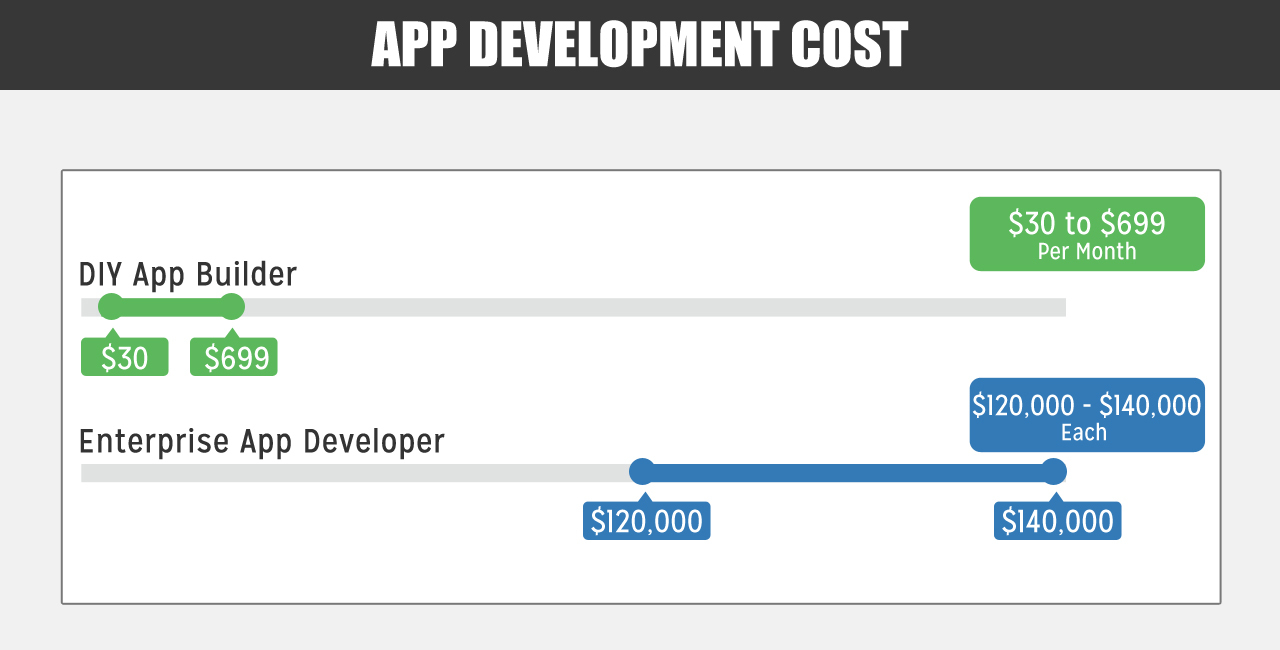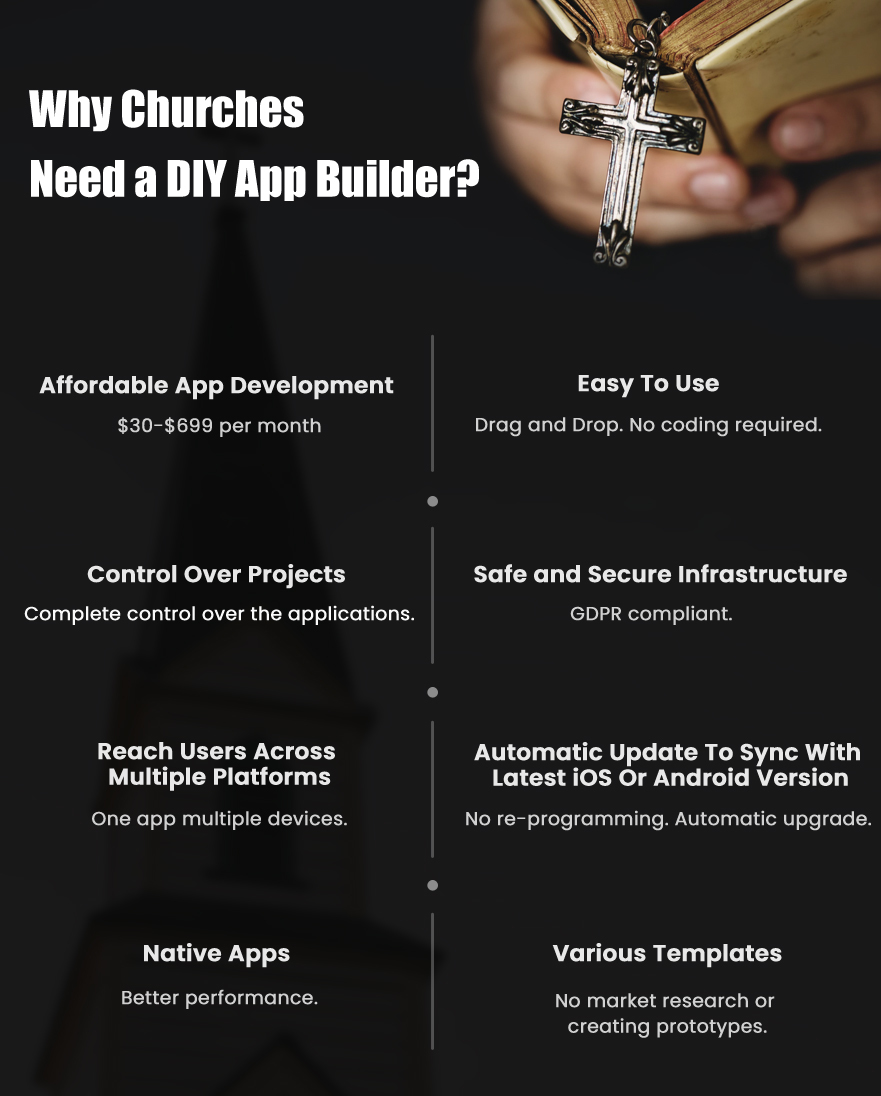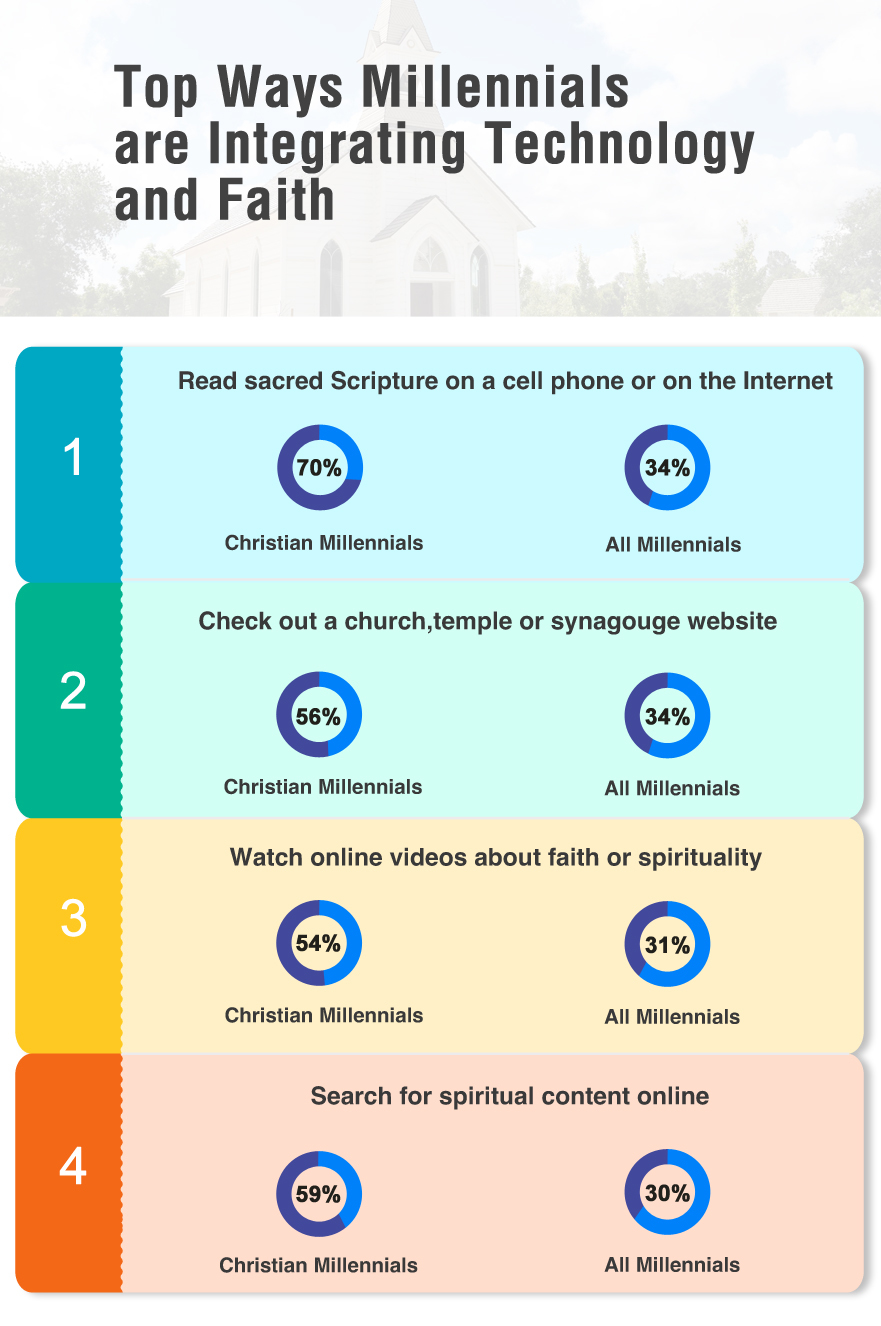8 Reasons Why Churches Need a DIY App Development Software

In a recent report published by AdWeek, a survey found that consumers now spend more than five hours a day on their smartphones, and 88% growth year over year in time spent watching videos on a smartphones. Furthermore, many reports suggest that most of the content consumed on mobile phones are in the form of videos of all genres.
It all began when Apple Inc. first opened up its open platform for mobile, Apple iStore followed by Google’s own mobile phone marketplace. Since then, many mobile phone applications have emerged, diversifying their “.com” presence to mobile phone application for better interaction with their audience. Applications like Facebook, YouTube, Twitter and so on.
The benefits of mobile apps to any organization cannot be overemphasized in this digital age, and Churches aren’t excluded. A recent report shows that 54% of practicing Christian Millennials prefer to watch Church videos on mobile.
There are many benefits for the church to have a mobile application; like the ability to have instant communication with the congregation through push notification, the capability to educate and attract new visitors, ability to increase tithing and donations, and more.
However, application development requires hiring a development team or hiring a development firm. Both of these options can be daunting to any Church. Development partners can be expensive and challenging to work with on a small budget. Meanwhile, staff onboarding for a single function, like app development, has its own logistical challenges, even on a freelance or part-time basis.
Yet, the overwhelming majority of users prefer mobile apps to mobile sites – a 2014 Nielsen research study shows that 89% of consumer mobile media time is spent in mobile apps, while only 11% is spent in mobile web.
Today, to create a mobile app, there is another solution for a Church: do-it-yourself (DIY) app builder platforms. Typically, these services are web-based – requiring no software downloads – and easy to navigate, providing the step-by-step instructions needed for even the most basic computer user to develop and launch a mobile app.
There are many reasons a Church should consider using a DIY app builder platform, eight of which are:
1. Affordable App Development
DIY mobile app is an inexpensive way for a Church to enter the mobile app arena. The cost of a DIY app can start at $30 per month and go up to $699 per month. At this price point, a mobile app becomes affordable for any Church that wishes to have their own mobile app that suits their budget.
A VDC survey of enterprise app developers found mobile apps to cost an average of $140,000 each. Compared to this, a DIY platform can put a mobile app into just about any business budget.

2. Easy to Use
In the past, mobile app development requires specialized skills to code and implement the program; most Churches do not possess this expertise.
Using a DIY app builder allows the in-house members of the Church to create their mobile application on their own and the way they would like it to be. Most of the DIY application builders come along with functions such as a “drag and drop” method of development which makes them quite user-friendly.
3. Control over Projects
A DIY application builder will provide the Church with complete control over their application. The Church can work on the theme they would like to have in their application, can work on the project at their own time and pace, and they wouldn’t have to draft their ideas in an email and send it across to the developer instead they would directly work on them.
4. Automatic Update to Sync with Latest iOS or Android version
Very frequently we come across news of a newer version of iOS or Android coming out. To users, this only means a better version of their operating system. But for applications running on those platforms, it means re-programming their codes in order to optimize the performance of the mobile application to match with the latest operating system.
If the application is created by a developer, it means the Church will have to continually reach out to them to get the app updated and pay a fee for those changes. With a DIY application, on the other hand, the service provider will automatically upgrade the application and the cost for these updates are mostly included in all the packages.

5. Reach Users Across Multiple Platforms
There are many questions to ponder while developing a mobile application like iOS or Android. This very question often derails the project if the application is being developed by development partners as it requires separate effort to develop an app for any OS. One application for iOS, one for Android and this increases the overall cost of the project.
In order to capture everyone, it is important to have an application for every type of OS based on the audience. The DIY application makes this task easier by providing an option to create applications for all type of operating system at one go.
6. Various Templates
When a Church makes a decision to invest in a mobile app, a significant amount of effort and money is involved in the process to understand what type of application would work best for them. This includes doing market research, analyzing similar applications, creating prototypes, etc.
With a DIY application builder having a specialized offering for Churches, it makes things very easy. DIY application builder like Appy Pie comes along with everything a Church mobile application should have.
7. Native Apps
There are two types of mobile applications in terms of their programming genre. Native applications and Hybrid applications. Native apps are built specifically for one operating system while Hybrid applications are built for multiple operating systems.
A native application will always have better performance instead of a Hybrid application because of how its foundation is similar to the operating system it is being operated at. Almost all the DIY applications are Native application unless otherwise needed for some very specific usage.
8. Safe and Secure Infrastructure
Users of any mobile application would like to use a safe secure platform because of all the information they might share on the application. Safety and security of user information become paramount in the case of a Church mobile app as the Church might also want the users to be able to make donations via the application. Also, with strict policies like GDPR coming into the action, the Church should have an application which complies to the latest laws and data protection policies.
To have an application which is safe and secure would be costly as various expert guidance would be required and each comes with their hefty consultation charges. A DIY application service on the other hand has its own team of experts which enables them to create an application that complies with the latest laws and policies.
Related Articles
- Different Characters of Rings of Power & Lord of the Rings
- 5 Best Payroll Software for Small Businesses
- Which Is The Best Language For Mobile App Development?
- What is Branding & How to Create a Strong Brand Strategy?
- 21 Best Live Chat Software for 2021
- Logical Reasoning Questions And Answers [With Explanations]
- Top Tips for Responsive Website Design
- Protocols in Swift Explained
- 10 Cardinal Steps to Beta Test Your Mobile App
- What is Digital Marketing? [A Beginner’s Guide]
Most Popular Posts
 Photoshop Alternatives: Top 10 Graphic Design Tools in 2024
Photoshop Alternatives: Top 10 Graphic Design Tools in 2024 By Deepak Kumar | July 25, 2024
 Canva vs Appy Pie Design – Which is Better?
Canva vs Appy Pie Design – Which is Better? By anupam | July 18, 2024
 Canva Alternatives: Top 15 Graphic Design Tools to Replace Canva in 2024
Canva Alternatives: Top 15 Graphic Design Tools to Replace Canva in 2024 By anupam | July 18, 2024
 Canva Review: Key Features, Pros, Cons & Pricing
Canva Review: Key Features, Pros, Cons & Pricing By anupam | July 18, 2024
 8 Best ManyChat Alternatives in 2024
8 Best ManyChat Alternatives in 2024 By Samarpit Nasa | July 12, 2024




